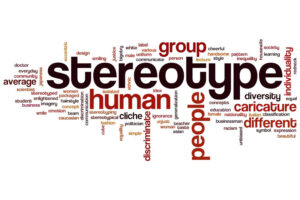I just read a moderately interesting article about how atheists, agnostics, and Christians are stereotyped in regards to their religious beliefs. The article pretty much confirms anything you’d suspect. Most people stereotype others based on their religious beliefs or lack thereof. That’s not what I’m going to be writing about today.
I want to discuss the extensive comments thread on the article. Now, I didn’t peruse all 1,322 comments on the article but I did scroll down far enough to get a general impression. No one discussed the actual article. People certainly had strong opinions on the religious beliefs of one another and things get quite political at times. As to the study? Nada.
What was the Study?
The study was pretty simple in design. Do people stereotype atheists, agnostics, and Christians differently? The premise being that, generally speaking, people think atheists are more likely to behave in a morally deficient manner. The big difference in this study is that it separated atheists and agnostics rather than grouping them together.
The results were exactly as predicted. Atheists were considered the most likely to behave immorally, followed by agnostics, with Christians being viewed as the least likely to engage in amoral practices.
Exactly what the study expected to find. The authors did some interesting things with the those who filled out the questionnaires by sometimes defining atheism and agnosticism and other times allowing the users to give their opinion without the definitions.
The Results of the Study on Religious Beliefs
To my, atheist mind, it’s a predictable result. It’s exactly what I’d expect. No big deal, study confirms the stereotypes exist and play out pretty much in a standard way.
The Comments
Ah, now we get to the interesting part of the article. The comments. After reading the article, I planned to comment my thoughts that the results pretty much matched expectations of the stereotypes of religious beliefs. No one else seemed to be on the same wavelength.
Not that people didn’t anticipate the results, they just filled the comment sections with more study fodder. Basically, everyone spent their time talking about moral expectations of people based on their religion and political views. I saw much back and forth on the actual definition of atheism and agnosticism. This of course, is exactly what the study was not about.
The study wasn’t about the actual morality of atheists, agnostics, and Christians. It was about stereotypes others have of those group in regard to their likely moral behavior.
It seems no one actually read the article, big surprise there. The atheists, agnostics, and Christians simply listed out their stereotypes of one another and argued about it. I found this humorous. I suspect you, valued readers, are less amused than I.
Conclusion
They needn’t have done the study at all. Just pretend to do the study and post the article. The comment section tells the rest of the story.
Tom Liberman
